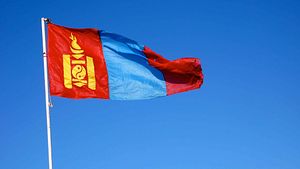Mongolian Prime Minister Khurelsukh Ukhnaa and his cabinet have resigned, amid protests that were touched off by a particular patient’s case but quickly came to encompass Mongolia’s general response to the COVID-19 pandemic.
With resolute action starting in February 2020, the government of Mongolia has been largely successful in containing the virus. However, eventually community spread was reported. Since November, the federal government and first responders have been battling the pandemic case by case as it emerges from different provinces. As of January 21, Mongolia has reported 1,584 cases, with two deaths – still very low compared to other countries worldwide.
While the government and its agencies continued to defend their approach to the pandemic, there has been an increase in civil unrest – though it is largely apparent on social media, due to the COVID-19 restrictions in the country.
On January 20 images arose on social media of a woman and her newborn baby being transferred to a COVID-19 quarantine facility, with the mother dressed only in a hospital gown in the bitter cold. The images stoked intense outrage over the lack of sympathy for the new mother, which eventually led to a peaceful protest at Sukhbaatar square in Ulaanbaatar. At first, the protesters demanded that the hospital workers who allegedly mishandled the patient be held accountable. But dissatisfaction grew as days went by. Anger over the handling of a specific COVID-19 patient and her baby quickly turned into demands for press freedom and the right to assembly, along with overall dissatisfaction about the government’s handling of COVID-19 – mainly the country’s lockdown.
“The Mongolian constitution allows the people to peaceful assembly, freedom of expression and press. Unfortunately, in the last couple of years, there has been significant action from the government and the judicial aids to implement authoritarian rules,” Bat-Orgil Turbold, an independent candidate who ran during the 2020 parliamentary election and a vocal critic about the emergence of authoritarianism in Mongolia, said. “The mishandling of the newborn baby and COVID-19 patient is just one example. The government has been increasingly skeptical of freedom of speech on widely used social media platforms such as Twitter and Facebook – enforcing identification requirements. The government has been limiting people’s right to express and assembly under the premise of the 2017 Administrative Offense Act.”
The protests thus grew to encompass pre-existing concerns about Mongolian governance. In a domino effect, demands grew to include the ouster of authorities at Mongolia’s National Center for Communicable Diseases, the National First Responders, and ultimately the Cabinet and the prime minister.
The prime minister obliged by suddenly offering his resignation on January 21. In a statement, Khurelsukh said he had to “assume the responsibility upon himself and accept the demand of the public.”
The resignation of Mongolia’s prime minister and his cabinet came as a surprise to Mongolians as well as observers overseas. And the move has not assuaged protesters, at least not yet. According to Bat-Orgil and other activists, “The general public are perplexed and suspicious of the prime minister’s motives” for such an abrupt resignation. Mongolia is facing enormous economic challenges due to COVID-19 and the country’s overall lockdown. As COVID-19 cases increase, calls for accountability as growing. Moreover, as Mongolia’s presidential election looms this summer, political competition is heating up – and that is not to Mongolia’s benefit.
Activists view the shock resignation as a way of “escaping from responsibility and accountability.” Another concern is that the newly established cabinet – filled with younger generation leaders – is now doomed.
The parliament will now need to approve Khurelsukh’s resignation as instability roils Mongolia’s political apparatus amid a global pandemic. The greater question, however, is how Mongolia’s democracy can overcome the constant threat of unstable governance.
Bolor Lkhaajav holds M.A. in Asia-Pacific Studies from the University of San Francisco. She is a frequent writer and commentator on Mongolian politics and foreign policy and is currently writing a book on Mongolia’s foreign policy. She is also a co-host of the 77 Nation political podcast, based in Washington, D.C.

































